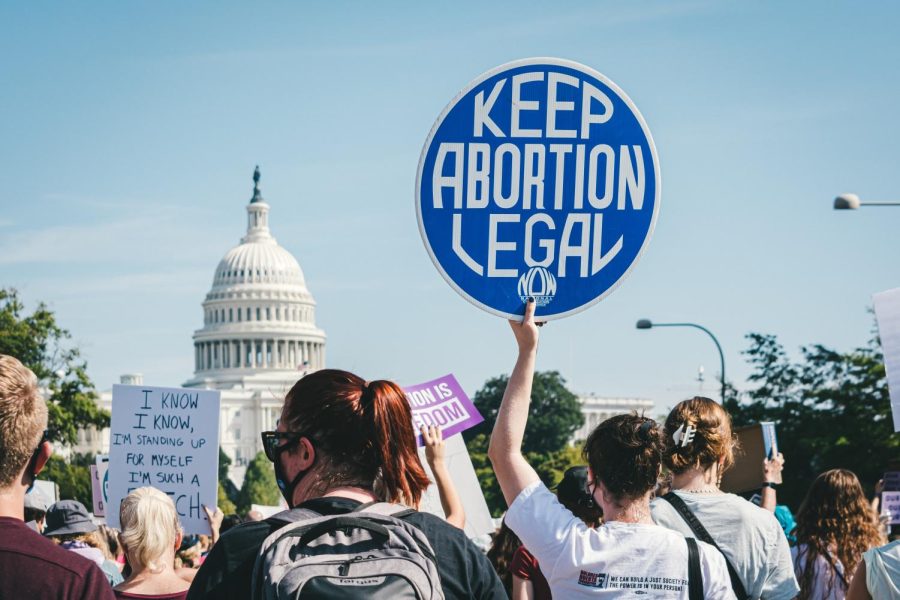The Rights Abortion Protects
Since Roe v. Wade was decided, many evangelical and Catholic Christians have waged a crusade for its overturning and the subsequent criminalization of abortion. Just as feverently, women who want the right to choose and religious minorities with differing views on abortion have resisted this campaign.
Now, with a 6-3 conservative majority on the United States Supreme Court, the question of abortion becomes even more significant. Though some evangelical/Catholic Christians believe that abortion should be illegal because it is murder – based on a religious interpretation that life begins at conception – the outlawing of abortion would violate the religious freedom of non-evangelical/Catholic Christians and the bodily autonomy of women in a discriminatory way.
Ultimately, it is important to note that unlike certain interpretations of Christianity, Jewish religious texts are largely supportive of abortion, and thus it would infringe on religious liberty to force the religious morality of one group onto another. The Talmud, a book on how to interpret Jewish law, somewhat gorily describes how the mother’s life must be put before the child, as it is not fully human until it is mostly out of the womb. To prosecute a Jewish doctor for following the Talmud when performing an abortion so as to save a woman’s life would infringe on his religious liberty.
This country has a strong separation of church and state; requiring people to disobey religious laws so as to satisfy the misgivings of another religion is inconceivable. Similarly, the Hebrew Bible also has some pro-choice sentiments expressed, as it can be interpreted that the Bible doesn’t consider a fetus a person. In Exodus, a case is described in which a greater punishment must be dealt out for harm committed against a person, versus harm that causes a miscarriage.
This distinction makes it clear that a fetus is not a person and thus should not enjoy the rights of one. Christians may disagree with this view of when life begins, but it is wrong to enshrine these beliefs (at the exclusion of other beliefs) in law. Overall, the religious interpretation of one faith must not be used to stifle the religious expression of others.
Additionally, the reversal of Roe v. Wade would violate bodily autonomy and would be discriminatory as one sex would be overly burdened. In a certain morality book, there is a situation described in which Person A can only be saved from a fatal disease by being hooked up to Person B for 9 months. While it is possible to argue that a refusal from Person B would be immoral, it is clearly ridiculous to call that refusal illegal. This same logic applies to abortion.
Even if one were to concede that a fetus is a person, a woman should still not be forced to sustain the fetus. She, in accordance with human rights, has control over her body. In addition to this, there is a discrimination concern with the banning of abortion, and per the 1964 Civil Rights Act, laws may not discriminate based on sex. The vast majority of people who become pregnant are women. To restrict access to what is, in some cases, life-saving medical care due to a person’s sex is a clear violation of the aforementioned act. To summarize, bodily autonomy and gender equality under the law cannot be preserved if abortion is criminalized.
While it is understandable that a religious interpretation of abortion as murder would force a view of abortion as immoral, the beliefs of certain Christians cannot take precedence in law over religious liberty, personal choice, and women’s rights. The Catholic Church has determined that life begins at conception, which is a perfectly acceptable philosophical claim to make. After all, when the process of life has started, is it not murder to disrupt it?
I have no issue with this religious belief, yet there are issues to be found in foisting personal religious beliefs onto those of differing religious beliefs. Jews cannot be expected to live under Catholic morality – especially considering the Talmud mandates abortion in certain cases – just as it couldn’t be expected that Catholics live under Jewish morality.
Moreover, women, who would be the main group affected under any criminalization, would have their bodily autonomy stripped. Rules against sex discrimination would be inherently violated by pro-life laws. The dueling importance of religious freedom for non-Christians and women’s bodily autonomy must override the personal religious beliefs that some Christians may hold.
In conclusion, even though evangelical/Catholic Christians might view abortion as murder, the reversal of Roe v. Wade would impact Jewish religious freedom and women’s civil rights in a legally unacceptable way. America does not base its laws on religious guidance; it follows the secular constitution.
Following this situation, it is clear that abortion is not a question for the state, rather it is a question for the individual, and it is shameful that this truth has ever been put into doubt. If Roe v. Wade is overturned, it will make a mockery of our laws, and a mockery of our secular democracy. Hopefully our Supreme Court will recognize this.

Jadyn has somehow survived 3 years of high school to become a senior. When not editing opinion articles, Jadyn can either be found stumping for Certamen...


